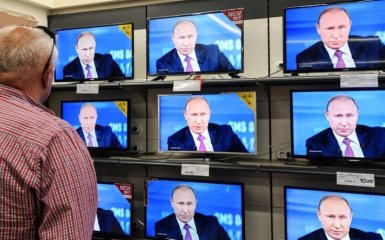As part of preparations for the March presidential election in Russia, Russians have begun bringing "agitators" to the temporarily occupied territories of Ukraine.
How Russians are preparing for pseudo-elections in the occupied territories
According to the mayor of Melitopol, Ivan Fedorov, in order to curry favour with dictator Vladimir Putin, the occupiers have begun preparations for illegal presidential elections in the temporarily occupied territories of Ukraine.
In particular, they brought eight busloads of artists to Melitopol and housed them in cramped conditions. The occupiers also hold meetings in the district administration building, jamming the communications so that no one can overhear criminal secrets.
According to the residents, it is the imported agitators who will spread lies about the dictator and the "Russian world" in the occupied communities.
However, our people know the truth for sure, and they see the "Russian world" — poverty, terror, unfreedom — with their own eyes, Fedorov added.
What we know about the presidential election in Russia
On 8 December, the current head of the Kremlin, Vladimir Putin, announced his intention to be re-elected for the fifth time as president, giving this promise to the speaker of the so-called "DPR parliament".
According to Reuters, the re-election will allow the dictator to remain in power until at least 2030. Meanwhile, Russian Presidential Spokesman Dmitry Peskov assures that Putin will allegedly be re-elected with more than 90% of the vote.
According to the decision of the Russian Central Committee, the presidential election in Russia will last for three days for the first time — from 15 to 17 March. In particular, terrorists plan to hold so-called "elections" in the temporarily occupied territories of Ukraine.




